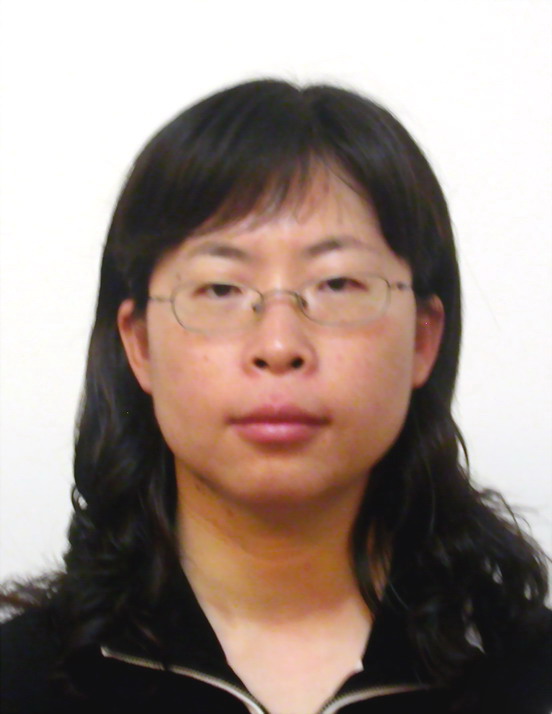
Hui Chen
Professor
Institute of Software Chinese Academy of Sciences
Email: chenhui@iscas.ac.cn
Telephone: 010-62661563
Address:No. 4, South 4th Street, Zhong Guan Cun, Beijing, China
Postcode: 100190
Research Areas
Education
The Chinese University of Hong Kong, Hong Kong, China
Ph.D. in Computer Science and Engineering, December 2006.
Thesis: Realistic Haptic Modeling & Rendering of Touch-enabled Virtual Environments
Shandong University, Jinan, China
MS in Computer Science, July, 1999
Thesis: 3D Remodeling from Wire Frame Structures of Iron Plate Solid
Shandong University, Jinan, China
BS in Computer Science, July, 1996Experience
Work Experience
Beijing Key Lab of Human-Computer Interaction / Intelligence Engineering Lab
Institute of Software Chinese Academy of Sciences, Beijing, China
Sep. 2017 - Present Professor
Aug. 2010 - Aug. 2017 Associate Professor
Center for Human-Computer Interaction, Shenzhen Institute of Advanced Integration Technology,
Chinese Academy of Sciences/The Chinese University of Hong Kong, Shenzhen, China
Jan. 2010 - Jul. 2010 Associate Professor
Nov. 2006 - Dec. 2009 Assistant Professor
Department of Computer Science, The Chinese University of Hong Kong, Hong Kong, China
Apr. 2006 - Oct. 2006 Research AssistantPublications
1. H. Xu, N. Yao, X. Peng, H. Chen*, H. Wang (2019). A multi-pose face frontalization method based on encoder-decoder network. Scientia Sinica (Informationis) (in Chinese), 49(04):86-99.
2. X. Peng, H. Chen*, L. Wang, H. Wang (2018). Evaluating a 3-D virtual talking head on pronunciation learning. International Journal of Human-Computer Studies, 109:26-40.
3. F. Qiao, Z. Jiao, N. Yao, Z. Li, H. Chen*, H. Wang (2018). Emotional facial expression transfer from a single image via generative adversarial nets. Computer Animation and Virtual Worlds, 29(6):e1819
4. N. Yao, Q. Guo, F. Qiao, H. Chen*, H. Wang (2018). Robust Facial Expression Recognition With Generative Adversarial Networks . Zidonghua Xuebao/Acta Automatica Sinica (in Chinese), 44(5), 865-877.
5. H. Wang, N. Yao, J. Dong, P. Zhu, H. Chen* (2018). Interface paradigm of Bots-based human-computer interaction. Scientia Sinica (Informationis) (in Chinese). 2018-04
6. S. Liu, H. Chen, J. Zhu, H. Wu, J. Xiong, H. Wang (2018). A model for natural human-computer interaction based on semiotic triangle. Scientia Sinica (Informationis) (in Chinese).2018-04
7. N. Yao, H. Chen*, Q. Guo, H. Wang (2017). Non-frontal facial expression recognition using a depth-patch based deep neural network. Journal of Computer Sciences and Technology. 32(2017):1185.
8. F. Chen, L. Wang, H. Chen, & G. Peng. (2017). Investigations on mandarin aspiratory animations using an airflow model. IEEE/ACM Transactions on Audio, Speech, and Language Processing, 25(12), 2399-2409.
9. W. Wu, H. Chen, Y. Cen, Y. Hong and P. A. Heng (2017). Haptic Simulation Framework for Determining Virtual Dental Occlusion, International Journal of Computer Assisted Radiology and Surgery, 12(4):595-606, 2017.
10. J. Liu, F. Zhang, H. Chen, Z. Zhang, H. Wang & G. Dai (2014). Left-right hand distinction for multi-touch tabletop interaction. Journal of Software (in Chinese), 25(5):939-952.
11. Q. Wang, H. Chen, W. Wu, H.Y. Jin and P.A. Heng (2012). Real-time mandibular angle reduction surgical simulation with haptic rendering. IEEE Transactions on Information Technology in Biomedicine, 16(6):1105-1114.
12. L. Wang, H. Chen, S. Li and H.M. Meng (2012), Phoneme-level articulatory animation in pronunciation training. Speech Communication, 54(7):845-856.
13. Q. Wang, H. Chen, W. Wu and P.A. Heng (2012). Impulse-based rendering methods for haptic simulation of bone-burring. IEEE Transactions on Haptics, 5(4):344-355.
14. H. Chen, L. Wang, W. Liu and P. A. Heng (2010). Combined X-ray and facial videos for phoneme-level articulator dynamics. The Visual Computer, Special Issue: Computer Graphics International (CGI 2010), 26(6-8): 477-486.
15. H. Chen, H. Sun and X. Jin (2010). Haptic-constraint modeling based on interactive metaballs. Journal of Computer Animation and Virtual Worlds, 21(5):485-497.
16. J.S. Zhang, H. Chen, W. Wu and P.A. Heng (2010). Real-time force simulation in multi-tissue virtual surgery. Journal of Computer-Aided Design & Computer Graphics (in Chinese), 22(2):216-225.
17. W. Wu, H. Chen and P.A. Heng (2010). A computation model on real-time interactive soft tissue cutting and deformation. Journal of Computer-Aided Design & Computer Graphics (in Chinese), 22(2):185-190.
18. H. Chen, W. Wu, H. Sun and P.A. Heng (2007). Dynamic touch-enabled virtual palpation. Journal of Computer Animation and Virtual Worlds; Special Issue: Computer Animation and Social Agent (CASA 2007), 18(4-5): 339-348.
19. H. Chen, H. Sun, X. and X. Jin (2007). Interactive soft-touch dynamic deformations. Journal of Computer Animation and Virtual Worlds, 18(3): 153-163.
20. H. Sun, H. Wang, H. Chen and K.H. Qin (2007). Touch-enabled haptic modeling of deformable multi-resolution surfaces. The Journal of Virtual Reality: Research, Development and Applications, 11:45-60.
21. H. Chen and H. Sun (2006). Body-based haptic interaction model for touch-enabled virtual environments. MIT Journal of PRESENCE: Teleoperators and Virtual Environments, 15(2):186-203.
22. H. Chen and H. Sun (2002). Haptic sculpturing in the virtual volume space. Journal of Computers (in Chinese), 25(9):994-1000.
23. J.Y. Wang, H. Chen and W. Wang (2001). A sufficient condition for a wire-frame representing a solid modeling uniquely. Journal of Computer Science and Technology, 16(6): 595-598.
Students
已指导学生
朱玥 硕士研究生 081203-计算机应用技术
刘孟孟 硕士研究生 081203-计算机应用技术
黄朝殿 硕士研究生 081203-计算机应用技术
郭清沛 硕士研究生 081203-计算机应用技术
徐海月 硕士研究生 081203-计算机应用技术
乔逢春 硕士研究生 081203-计算机应用技术
现指导学生
李博宇 硕士研究生 085211-计算机技术
范睿凯 硕士研究生 081203-计算机应用技术
白泽琛 硕士研究生 081203-计算机应用技术
吕承辰 博士研究生 083500-软件工程
